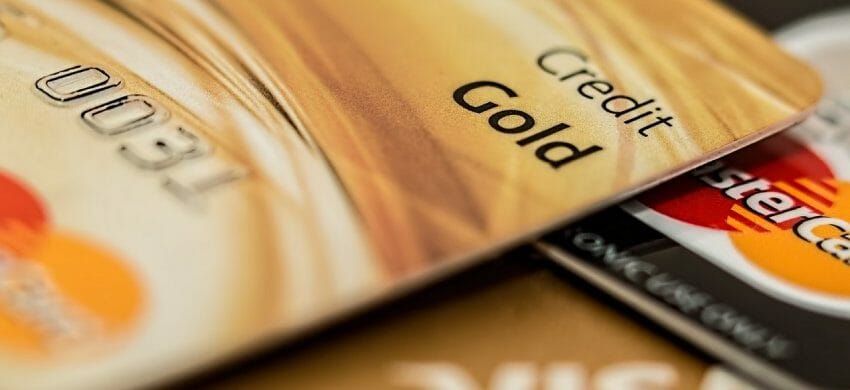Disclaimer: We are not qualified legal or tax professionals and are not giving advice. Always speak with a qualified professional before making any legal or financial decisions.
The Covid-19 pandemic is having many diverse effects on Americans – from health care to child care to in-person communication. There is yet another change on the horizon that people need to be aware of in order to protect themselves from financial disaster.
Depending on your age and your credit score, your credit cards may be closed or the credit limits may be slashed in the next few weeks or months. In fact, more than 70 million card holders have been affected in the last 60 days.
Sometimes these changes are made in response to a falling credit score, not being used, or because of a missed payment. Other times, it is to decrease the bank’s exposure to risk.
Credit Cards
Credit cards are a risk for banks and financial institutions. Credit card purchases are often not able to be repossessed and repayment is almost on an honor system. Sure the credit card issuers can send you to collections, but repayment is not exactly guaranteed.
In order to limit their liability, some credit card issuers have started to close cards. Many times, these are unused cards tucked away for a rainy day. However, this is not always the case. In the last 60 days, 1 in 4 credit card people have had a credit card closed by the card issuer.
Preventing Closing Credit Cards
You may be able to encourage the bank to not close your card by using a little-used card for low recurring purchases and then paying off the card in full using auto payment.
Slashing Credit Limits
Instead of closing a card, the bank may cut the credit limit. About 1 in 3 credit card holders have been closed in the last 60 days. Most of the time, the credit limit is lowered by $1,000, although 1 in 5 cardholders have seen a $5,000 reduction.
Who is Most Affected?
Credit card closing is affecting men, families with young children, minorities, and high-income earners. Older people are less likely to have their credit cards closed.
Credit card limit reductions are hitting people with higher incomes or with high credit limits. Unused credit limits are a risk to lenders and they eliminate risk by slashing available credit.
Another population that is affected are millennials (ages 24-29) who tend not to have long credit histories. Young millennials under 31 are particularly at risk.
After-Effects of Closing or Cutting
Be aware that if your credit limit is suddenly cut, you may see a sudden drop in your credit score. This is because you have less credit available because the revolving balance is eating up the amount you have left. Try to keep your card under 25%-30% of the available limit to keep your credit score from being damaged.
Your credit utilization ratio (how much you are using versus your limit) will suddenly increase with a dropped credit limit. This also drives down your credit score.
Strategies
Calling your credit card issuer to ask if the credit limit can be raised is a possibility, as is calling other credit card issuers who haven’t cut limits or cancel your card. Pay off balances. Focus on paying off higher interest credit cards as soon as possible.
Always review your credit score from Equifax, TransUnion, and Experian. A free report is available once a year from these companies.
Other Debt Relief Options
If you find yourself with more than $10,000 in credit card debt and no way to repay it, Pacific Debt, Inc. may be able to help. We are a debt settlement company that has settled more than settled over $300 million in debt for our customers since 2002. If you are not sure if debt settlement is right for you, check out this article on California debt relief options.
Pacific Debt Relief
If you would like more information on debt settlement and your other options, contact Pacific Debt, Inc. We may be able to help you become debt-free in 2 to 4 years. Our award winning debt specialists will help you understand the best options for your unique situation.
Pacific Debt, Inc is an A+ member of the Better Business Bureau. We rate very highly in Top Consumer Reviews, Top Ten Reviews, Consumers Advocate, Consumer Affairs, Trust Pilot, and US News and World Report.
Pacific Debt is currently providing debt relief coverage in the following states:
Alabama, Alaska, Arizona, Arkansas, California, Colorado, District of Columbia, Florida, Idaho, Indiana, Kentucky, Louisiana, Massachusetts, Maryland, Michigan, Minnesota, Missouri, Mississippi, Montana, North Carolina, Nebraska, New Mexico, New York, Oklahoma, Pennsylvania, South Dakota, Texas, Utah, Virginia, Wisconsin
* Other states can be connected to one of our trusted partners
For more information, contact one of our debt specialists today. The initial consultation is free, and our debt experts will explain your options to you.
*Disclaimer: Pacific Debt Relief explicitly states that it is not a credit repair organization, and its program does not aim to improve individuals' credit scores. The information provided here is intended solely for educational purposes, aiding consumers in making informed decisions regarding credit and debt matters. The content does not constitute legal or financial advice. Pacific Debt Relief strongly advises individuals to seek the counsel of qualified professionals before undertaking any legal or financial actions.
Reduce Your Credit Card Debt By Up to Half

BBB Reviews | 4.9/5.0 Rating









 Do Not Sell My Personal Information
Do Not Sell My Personal Information